HTU21D Sensor Features
The HTU21D is a digital humidity and temperature sensor. It uses I2C communication and there are 2 SCL and SDA pins that are needed to be hooked up in order to communicate to this sensor. This sensor is ideal for temperature and humidity sensing.
- Humidity measuring range: 0-100% RH°/ Accuracy ±2%
- Temperature measurement range: -40 ° +125 °/ Accuracy ±0.3C
You can download the datasheet of this module here.
HTU21D Sensor Pinout
This module has 4 pins. 2 for power supply and 2 for I2C communication.
- +: Module power supply – 3.3V
- –: Ground
- DA: Data pin for I2C communication
- CL: Clock pin for I2C communication
You can see pinout of this module in the image below.
Required Materials
Hardware Components
Software Apps
Interfacing HTU21D Sensor with Arduino
Step 1: Circuit
The following circuit shows how you should connect Arduino to HTU21D Sensor. Connect wires accordingly.
Warning
The module supply voltage should be between 3 and 3.6 volts. Using higher voltages can damage the sensor.
Note
To activate the pull-up resistors on the SCL and SDA pins, you must connect the jumper on the board. Otherwise you have to add 2 pull-up resistors to your circuit.
Step 2: Installing Library
Download the HTU21D sensor library from the link below and then install.
Tip
If you need more help with installing a library on Arduino, read this tutorial: How to Install an Arduino Library
Step 3: Code
Upload the following code to your Arduino. This code displays the temperature and humidity read in the serial monitor.
/*
HTU21D Humidity Sensor Example Code
By: Nathan Seidle
SparkFun Electronics
Date: September 15th, 2013
License: This code is public domain but you buy me a beer if you use this and we meet someday (Beerware license).
Uses the HTU21D library to display the current humidity and temperature
Open serial monitor at 9600 baud to see readings. Errors 998 if not sensor is detected. Error 999 if CRC is bad.
Hardware Connections (Breakoutboard to Arduino):
-VCC = 3.3V
-GND = GND
-SDA = A4 (use inline 330 ohm resistor if your board is 5V)
-SCL = A5 (use inline 330 ohm resistor if your board is 5V)
*/
#include <Wire.h>
#include "SparkFunHTU21D.h"
//Create an instance of the object
HTU21D myHumidity;
void setup()
{
Serial.begin(9600);
Serial.println("HTU21D Example!");
myHumidity.begin();
}
void loop()
{
float humd = myHumidity.readHumidity();
float temp = myHumidity.readTemperature();
Serial.print("Time:");
Serial.print(millis());
Serial.print(" Temperature:");
Serial.print(temp, 1);
Serial.print("C");
Serial.print(" Humidity:");
Serial.print(humd, 1);
Serial.print("%");
Serial.println();
delay(1000);
}
Arduino
After running the code, you will see the following image in the serial output.
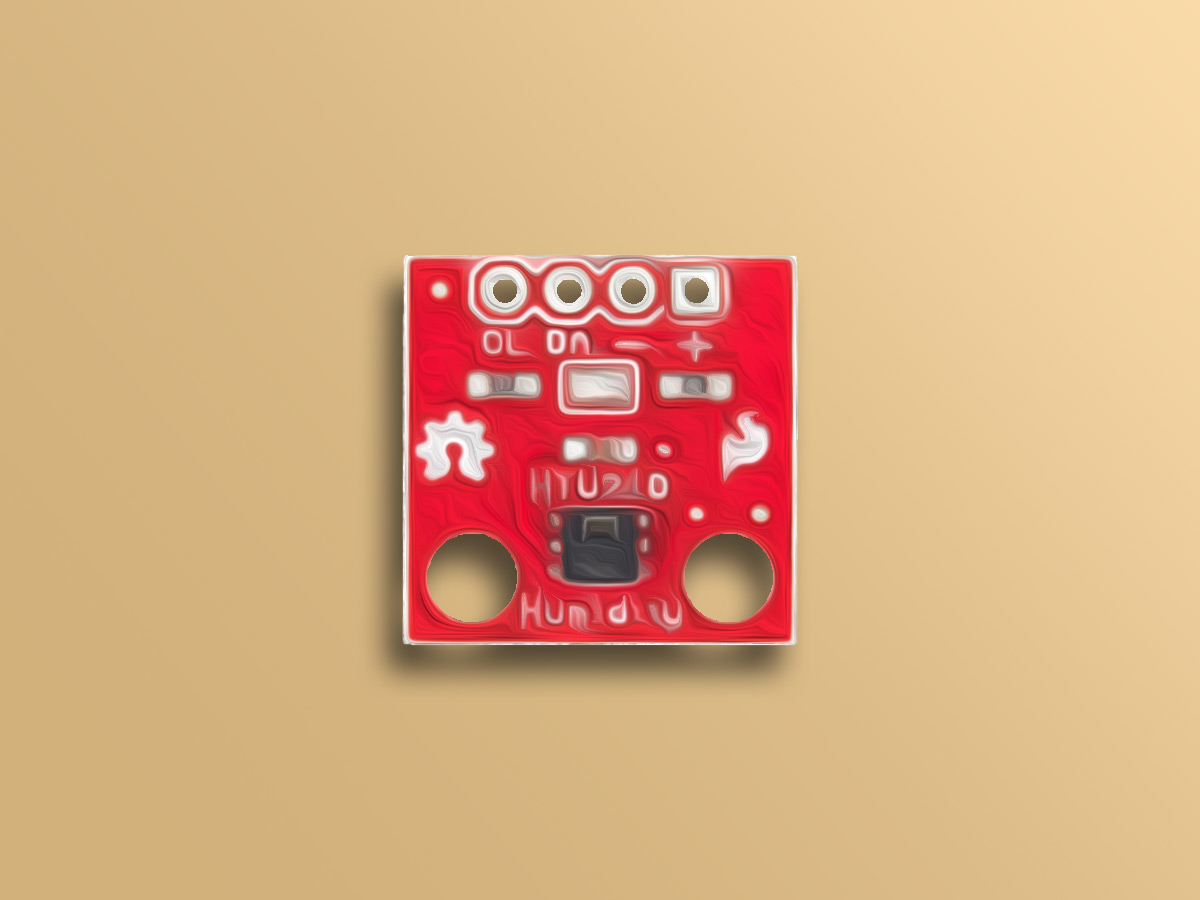
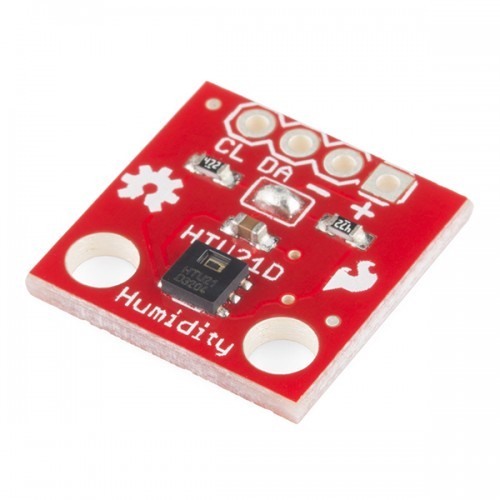
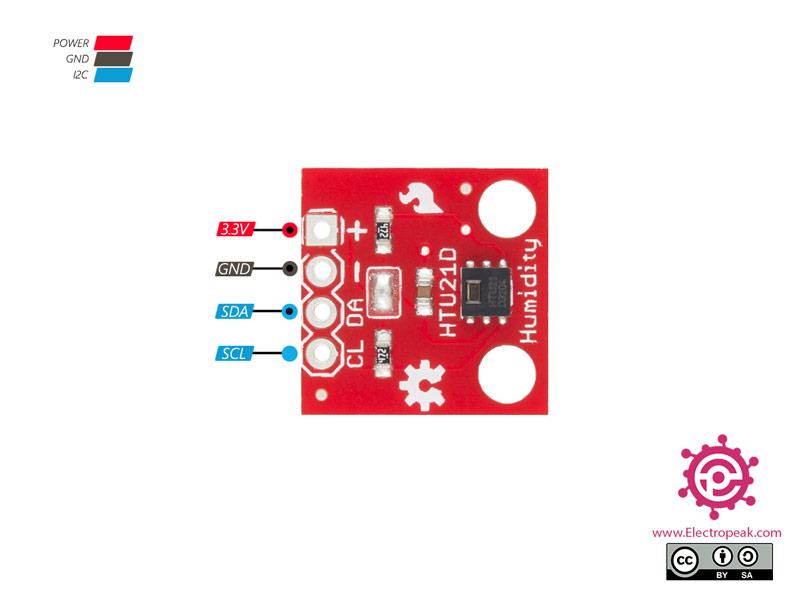
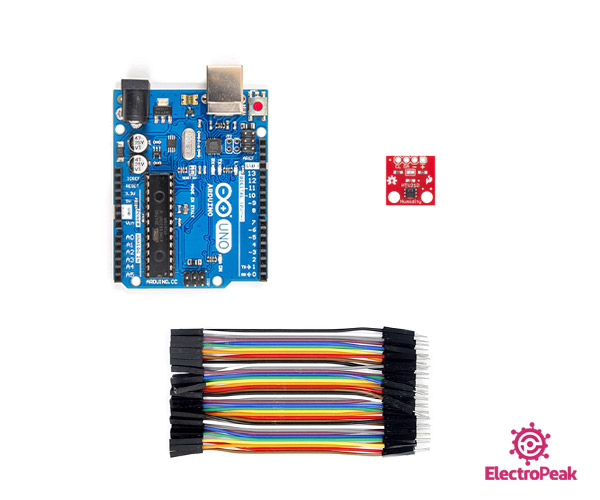
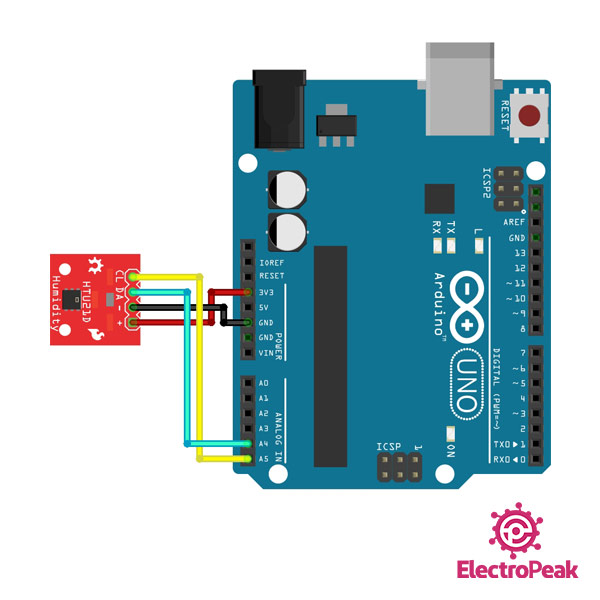
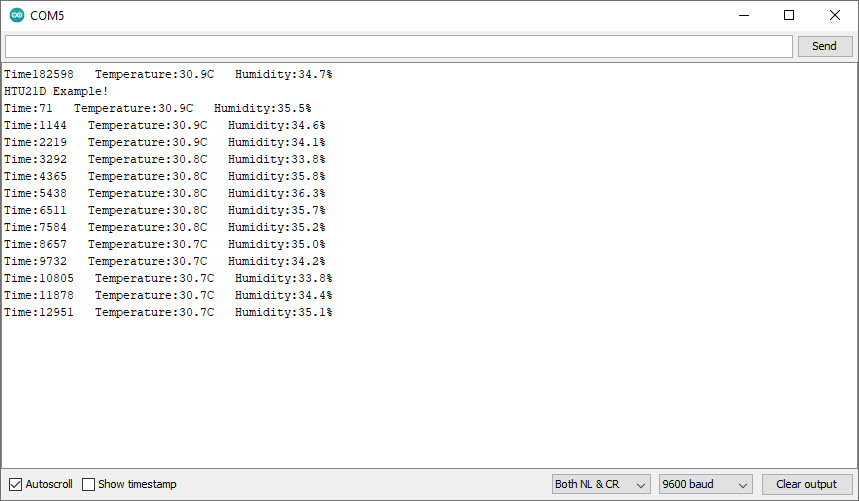

Comments (3)
te onduidelijk
Om de pull-up weerstanden op de SCL en SDA pinnen te activeren, moet je de jumper op het bord aansluiten. Anders moet je 2 pull-up weerstanden toe te voegen aan uw circuit.
hello
how can i use 5 sensors with 1 arduino uno?
please publish an example code
thanks
Hi Dear
you need to use I2C Extention Module to Initialize several Module with same I2C Address.
refer to below address , you can use it for your project
https://electropeak.com/learn/connect-multiple-i2c-devices-to-arduino-using-i2c-multiplexer-tca9548a/
good luck